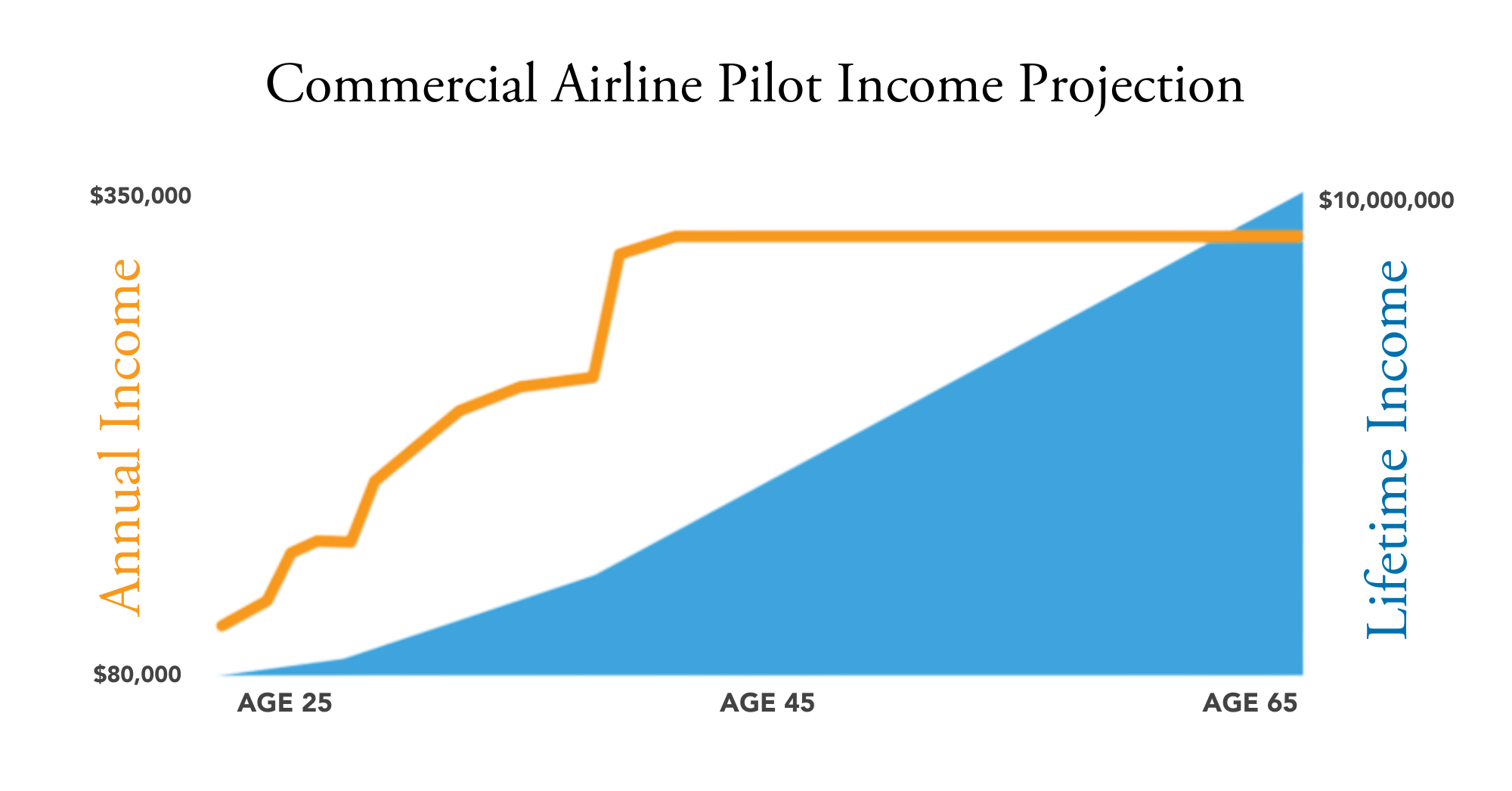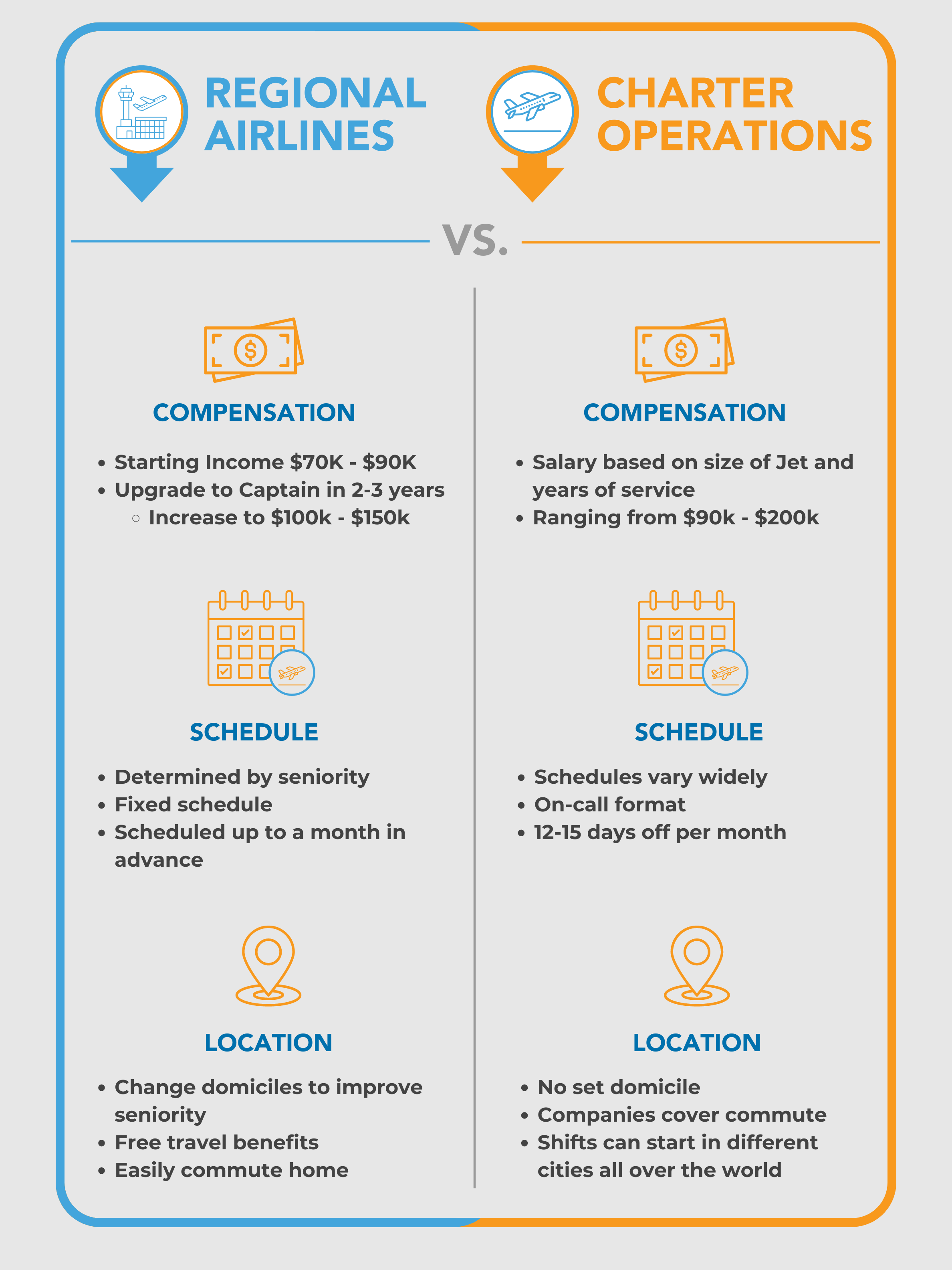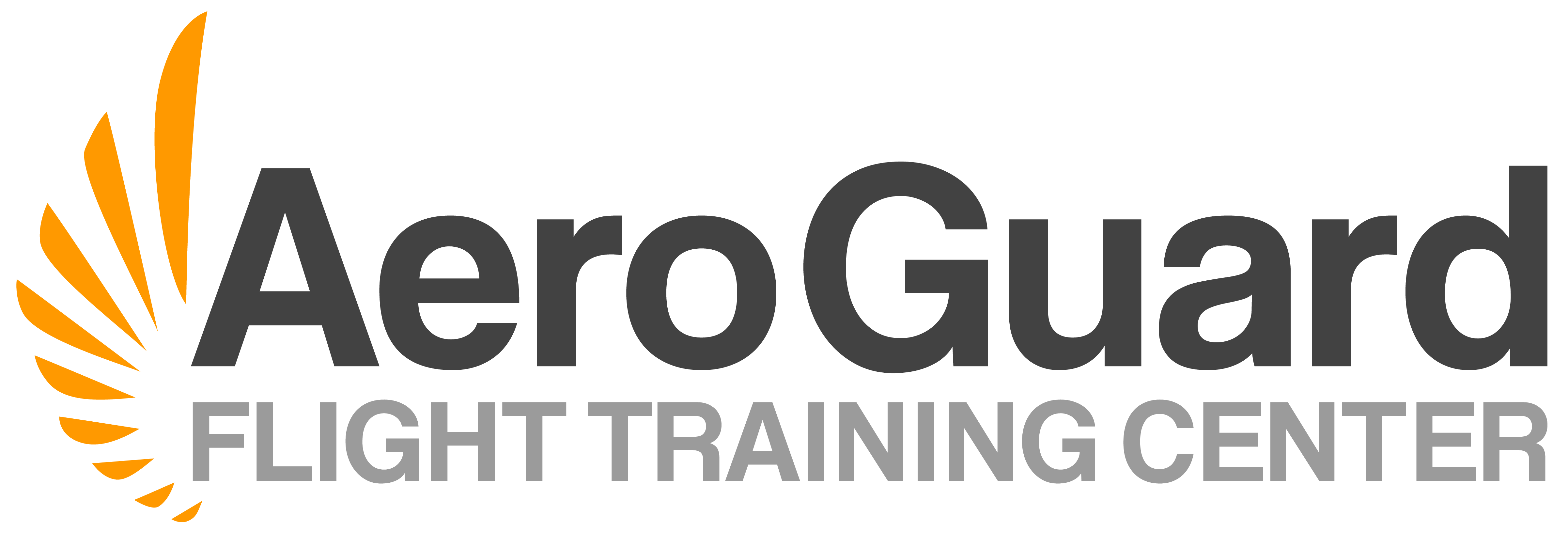Pilot Salary Potential
Airline Pilot Salaries
Many students, when looking into a new career, often look at what type of salary they can expect and some students will look at the cost of the education. Since flight training can cost as much as a four-year college degree, it’s important to look at both to ensure that the career will give you a positive return on your education investment.
The good news is, being a pilot can be a very lucrative career. The United States Bureau of Labor Statistics shows the median annual wage for airline pilots, copilots, and flight engineers was $219,140 in 2023.

How Much Do Pilots Make?
Commercial airline salaries are on the rise. How much pilots make will vary depending on the airline you fly with, the type of aircraft you pilot, the routes you are assigned, your level of experience, your seniority, and how many hours you fly a month. This is because pilot salary is paid by flight hour and not on an annual salary basis.
The data to the left suggests a pilot can currently make upwards of $10 million over the course of their lifetime. As with many careers, it depends on the determination, work ethic and tenacity of each pilot, but the possibilities are bright.
For example, a first year First Officer for a regional airline could earn $90,000 a year flying a minimum of 65 flight hours a month. If that First Officer decides to fly an additional 10 hours a month, they could earn over $100,000 a year. Your motivation and determination can go a long way!
Recently, airlines have heavily increased pilot salaries, some by over 40%, and have begun offering increased benefit packages such as profit sharing. This increase in salary & bonuses will continue to trend upward over the coming years due to the ongoing pilot shortage.
Careers with the Highest Pilot Salary
There are many pilot careers to consider when entering into the aviation industry.
However, more often than not, a student’s goal is to become an airline pilot since that is generally the career with the highest salary potential. The most popular pilot jobs when starting out are with regional airline and charter airlines.
From there, pilots accrue flight hours and experience to move up to either cargo operations or major airline positions, where pilots are paid toward the top of the salary range.
Major Airline and Cargo Operations
When people think pilot career and pilot salary, they generally think of working for major carriers like United, Delta, Southwest, UPS or Fedex. This is because these are the highest paying pilot careers with the most flexible schedules. These operations typically run similar to the regional airlines, but they fly much larger jets. By flying larger jets, pilots are better compensated and with better work life balance.
- Pay: The range varies significantly based on seniority and aircraft but can be anywhere from $100-$200k within the first 5 years and can increase to upwards of $350k.
- Schedule: Pilots generally fly 3-4 day trips with around 12-15 days off per month. In the largest jets, the trips are usually international and transoceanic.
- Location: Pilots are assigned to domiciles which are the bases from which flight trips begin and end. Airline pilots have travel benefits and therefore can fly for free so many choose to live elsewhere and commute to their assigned domiciles.
Median Annual Salary for Airline Pilots and Copilots in the U.S.
- 2023: $219,140
- 2022: $211,790
- 2021: $202,180
- 2020: $186,870
- 2019: $174,870
*Source: United States Bureau of Labor Statistics
Regional Vs. Charter Operations
Once a pilot meets the aeronautical experience requirements for an Airline Transport Pilot certificate, they can either continue with their current role or transition to a larger operation.
Traditionally, the best paying pilot roles are at the airlines and therefore many aviators choose to continue down that path. Alternatively, larger charter operations have various scheduling and pay differences that some aviators may prefer over the lifestyle at the airlines.
Most Regional First Officers have a starting pilot salary of between $70k-$90k, which may seem low to some, but keep in mind at this point, you have no experience and the airlines are investing a lot of money in you through extensive training on their fleet and (most likely) providing you with your ATP certificate.
Some pilots will have the opportunity to upgrade to Captain in as little as 2-3 years which then increases the pilot salary to $100k-$150k. Since this is an hourly paid position, pilots have the opportunity to leverage their schedule to fly more hours and increase their pay.
A Regional Pilot’s schedule will be determined by seniority. The schedule is generally fixed and can be scheduled up to a month in advance which provides a good work/life balance so pilots can schedule personal events around their pre-determined work schedule. Pilots can change domiciles to improve seniority, they receive free travel benefits for themselves and immediate family, and allows pilots to not have to live in the area where they are assigned, using their flight benefits to easily commute back and forth.
Charter pilots on the other hand, are one of the few pilot positions that are typically paid on a salary basis. Salary is based on the size of the jet flown as well as their years of service and a charter pilot’s salary can rage anywhere from $90k-$200k.
Unlike a regional pilot, a charter pilot has a widely varying schedule since they are often “on-call”. They generally receive 12-15 days off per month and do not have a set domicile where they are stationed. Instead, the companies generally cover their commute to where they need to be for their next flight and shifts can start in different cities all over the world.

Start Earning a Pilot Salary
Now that you’ve taken the time to understand the income potential of becoming a pilot and even looked at a comparison of a few of the more popular pilot jobs out there, you’re probably asking yourself, how do I start?
Our “How to Become a Pilot” guide will teach you everything you need to know on how to get started toward your new career. If you have any questions, simply fill out the form below and we’ll get you connected with someone who can help.

